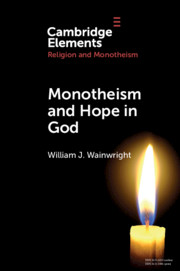Element contents
Monotheism and Hope in God
Published online by Cambridge University Press: 05 August 2020
Summary
Keywords
- Type
- Element
- Information
- Online ISBN: 9781108761376Publisher: Cambridge University PressPrint publication: 03 September 2020
Bibliography
- 13
- Cited by



